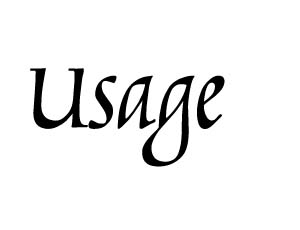When is a particular definition of a word archaic and when is it obsolete? As we noted recently, Webster's says "The temporal label 'archaic' means that a word or sense once in common use is found today only sporadically or in special contexts." In contrast, "The temporal label 'obs' for 'obsolete' means that there is no evidence of use since 1755." An example of an archaic word is the verb "doubt" in the sense of fear or suspect. An example of an obsolete word is "geason," which means unproductive, scant, or scarce.
There's something oddly provisional about Webster's use of the "obs"
label. For example, if we were to say, "The geason vegetation of Russia's
northerly taiga scarcely suffices to sustain a herd of Icelandic sheep"--and
we just have--does the word "geason" switch categories from "obsolete"
to "archaic" forthwith? By the terms of Webster's labeling conventions,
the answer would seem to be yes. But before you embark on a career of resuscitating
into archaism the many fine words now languishing in obsoleteness (thereby
earning yourself a prominent place in the usage examples portion of the
next edition of Webster's New International Dictionary), consider the following
anecdote.
In the early 1920s, James Branch Cabell decided to revive the obsolete word
"geas," meaning an obligation placed upon a knight errant (or
other quester) that must be discharged before the knight is deemed successful
in his calling. Cabell wrote a novel, Figures of Earth,whose entire
plot revolves around the hero's efforts to fulfill the geas laid upon him
to make a fine figure in the world. And yet if you check any Webster's--Collegiate,
New International, or non-Merriam-Webster--you won't find "geas"
at all. Thanks to Cabell it isn't obsolete anymore, but it resides in the
gray limbo of archaic words so little used that they fail to pique the Merriam-Webster
staff's interest.
